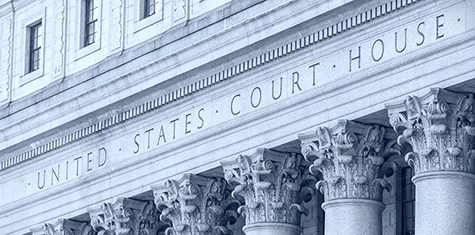

In a significant victory for trust beneficiaries in Minnesota, the Minnesota Supreme Court issued an important decision on October 27, 2021, addressing the interplay between a trustee’s powers and her fiduciary duties in the case captioned In re the Tr. of Lawrence B. Schwagerl Tr. Under Agreement Dated April 9, 1999, Case No. A19-1814, __ N.W.2d __ (Minn. Oct. 27, 2021).
In re the Tr. of Lawrence B. Schwagerl Tr. Under Agreement
Fredrikson & Byron attorneys Joseph J. Cassioppi, who argued the case before the Minnesota Supreme Court, and Emily A. Unger, represented a trust beneficiary who learned that the trustees had sold the trust’s primary asset—valuable farm real estate—to one of the trustees for a fraction of its value and then diverted all other trust assets to a separate trust. After multiple years of litigation and a trial, the District Court found that the trustees had breached their fiduciary duties, appointed a neutral successor trustee, and instructed the successor trustee to recover the assets that had wrongfully been removed from the Trust. The Court of Appeals reversed on multiple grounds, including based on its determination that a trustee who is provided a power to sell assets in a trust agreement is entitled to sell trust property at any price and on any terms she selects.
The Minnesota Supreme Court affirmed the Court of Appeals in part, reversed in part, and remanded for further proceedings. On the key issue of the relationship between a trustee’s powers and her fiduciary duties, the Supreme Court reversed the Court of Appeals, and explained “[a] trustee is not permitted to disregard fiduciary duties and treat trust assets as their own even if a trust document gives the trustee broad authority.” Citing the Restatement (Second) of Trusts, the Supreme Court held that a trustee may not exercise any power granted by a trust agreement or the law if doing so would violate any of her fiduciary duties to the trust beneficiaries. The Supreme Court also stressed the significant deference appellate courts are required to provide findings of fact made by a district court following a bench trial, reversing the Court of Appeals’ decision to overturn multiple findings made by the District Court. Finally, the Supreme Court provided important guidance on trust interpretation.
The Supreme Court’s decision emphasized and applied the fundamental principle of trust law that a trustee must always exercise a power in good faith and in the best interest of the beneficiaries. The decision provides important guidance for trust beneficiaries and trustees and will have wide-ranging application in connection with all types of fiduciary relationships in Minnesota.
Fredrikson & Byron is a leading Midwest law firm working collaboratively to help businesses achieve their goals regionally, nationally and globally. With a reputation as the firm “where law and business meet,” our attorneys bring business acumen and entrepreneurial thinking to work with clients and operate as business advisors and strategic partners as well as legal counselors. The firm’s 300+ attorneys are based in Minneapolis, with offices in Bismarck, Des Moines, Fargo, Mankato, St. Paul, Saltillo, Mexico, and Shanghai, China. Learn more at fredlaw.com, LinkedIn or @FredriksonLaw.


